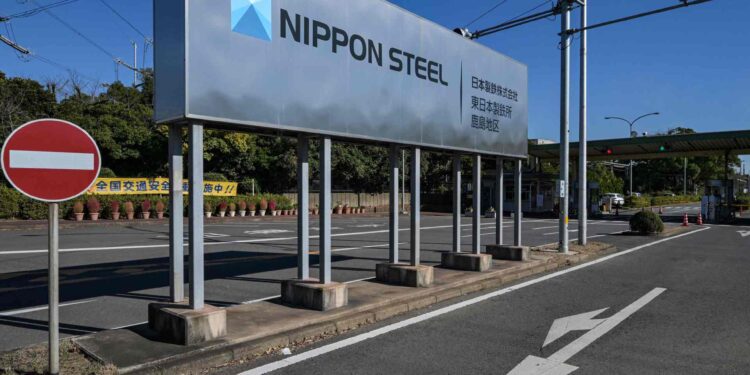1/4/2025–|Last updated: 1/4/202507:19 PM (Mecca time)
US President Joe Biden officially blocked the acquisition of the American company “Nippon Steel Corp” by the Japanese company “United States Steel Corp” for $14.9 billion, indicating that the agreement constitutes a threat to national security.
The decision – announced on Friday after a year-long review by the Committee on Foreign Investment in the United States – was described as a death blow to the controversial merger plan.
Reasons for rejection
Biden said in an official statement: “A strong steel industry – owned and operated by Americans – is a fundamental national security priority, and is essential for the resilience of supply chains.” He added: “Without domestic steel production and domestic steelworkers, our nation becomes less strong and less safe.”
The Japanese Kyodo agency reported that the United States Steelworkers Union (USW), one of the most powerful labor unions in the United States, strongly opposed the deal, noting that it might put local jobs at risk. The deal also faced criticism from American politicians who were keen to keep the company’s ownership local.
Nippon Steel reaction
Following the rejection decision, Nippon Steel Corp. announced that it would file a lawsuit to protect its legal rights, accusing the US administration of politicizing the review process. The company confirmed in a joint statement with US Steel that the review was “manipulated to advance President Biden’s political agenda.”
According to a report published by Reuters, the Japanese company believes that rejecting the deal conflicts with the efforts made to enhance economic cooperation between Japan and the United States.
Nippon Steel plans to take all necessary legal measures to ensure the implementation of the acquisition agreement supported by US Steel shareholders.
Background of the deal
Nippon Steel had submitted the highest bid of $14.9 billion during an auction held in December 2023, to win the acquisition of the second largest steel producing company in the United States.
However, the Committee on Foreign Investment decided to refer the final decision to Biden in December after not reaching a unanimous consensus on the potential security risks.
Political and economic dimensions
Analysts point out that the rejection reflects the United States’ desire to maintain its strategic industries under local control in the face of global challenges, especially with the rise of China’s economic and military influence.
In the same context, Kyodo reported that Japanese Prime Minister Shigeru Ishiba urged Biden – in a letter he sent in November – to approve the deal to strengthen bilateral relations, but his efforts failed.



